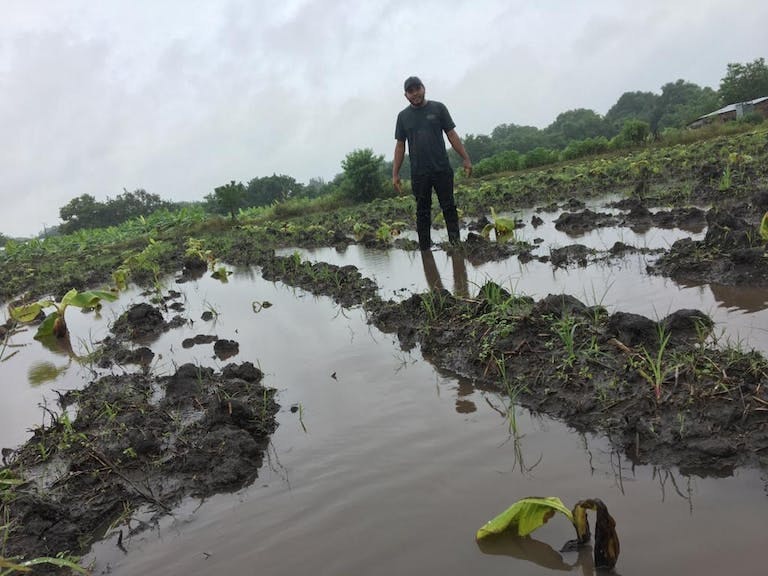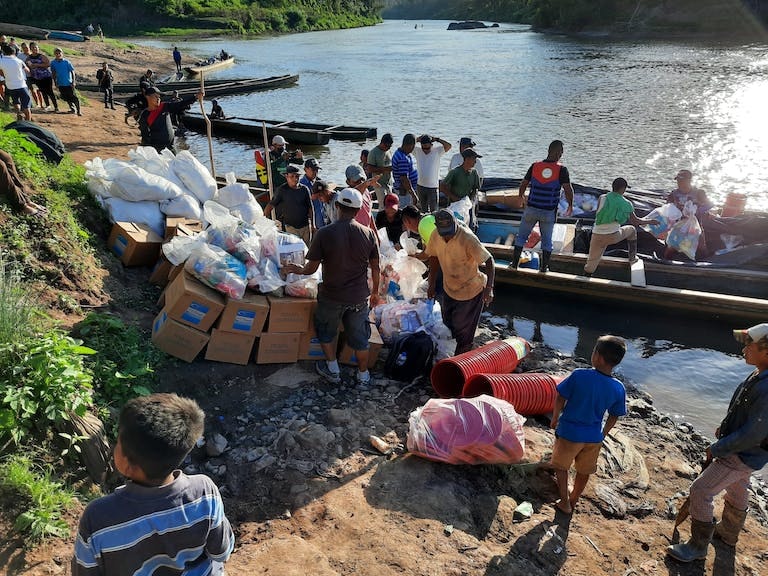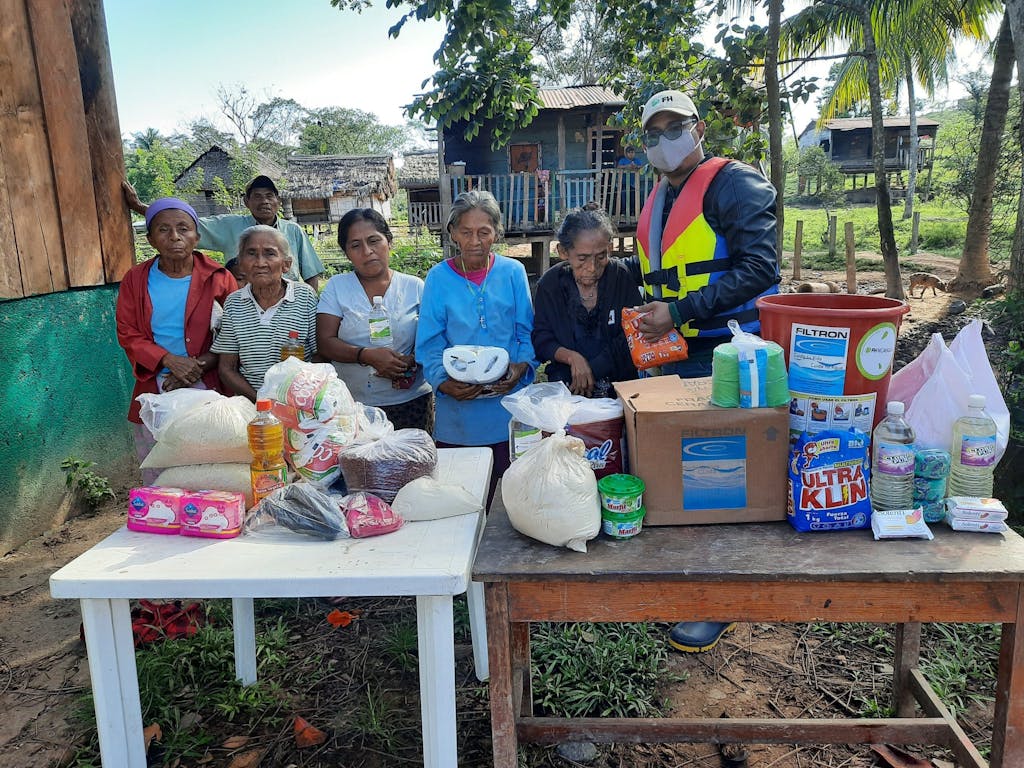When hurricanes, earthquakes, or wars strike, your disaster donation has amazing power to change lives. You may not realize just how powerful even a small donation can be.
When back-to-back Hurricanes Eta and Iota hit Nicaragua in November 2020, wind and floods wiped out homes, crops, and livestock. In the hours immediately after the disaster, Food for the Hungry (FH) helped provide food and blankets to those affected, and tarps to cover holes in the roofs and walls of their homes.
FH staff members slogged through mud and debris to remote homes and farms, where they comforted survivors and assessed the extend of damage. We call this “assist and assess,” helping those in dire need while we, at the same time, gather information about how we best can help.
One of the farms our staff visited belonged to Ramón Salina, who had received plants, fertilizer, and farm tools from FH to help him start a banana-growing business. “This is our only source of family income,” Ramón said, as FH staffers looked out on his ruined field. Ramon had lost 90% of his banana crop to the hurricanes’ rain and wind.

What Happens When You Give
A disaster donation to FH allows us to meet the immediate needs of people like Ramón, which involves so much more than simply buying goods to distribute.
Certainly providing food, water, and shelter is important. That’s our first step after a disaster – to determine who has needs and then find a way to meet those needs. Buying emergency goods as locally as possible is top priority. If it’s local, we can put it into people’s hands more inexpensively and almost immediately. If it’s local, we are additionally helping by directing money into their battered economy. Your cash donations help FH respond quickly and appropriately.
But you also help us deliver the goods where they’re needed. “Local purchase” still may mean hours away, depending on the extent of the damage. Transportation costs skyrocket after disasters. Shortages of trucks, gasoline, and drivers slow delivery and also drive up the prices of relief goods. Even communications costs – for mobile phone data – rise as FH staff communicate needs back to those who are preparing to help.

How Your Disaster Donation Helps Later
Sometimes FH needs to remain in a community for weeks and even months after the disaster. Even after houses are repaired, schools reopen, and a regular rhythm of distributions is in place to put food on the tables, deep needs often remain that plague – or even endanger – the community.
Most of the families working with FH make their primary income from farming. There are crops to plant again, when the season is right. FH may need to continue food distribution while families are working their way back to being self-reliant. For Ramón in Nicaragua, almost four months after the hurricanes, FH is working to help him replant and to finish an irrigation system put on hold due to the storms. Sometimes, FH provides cash or food as payment to community members who work on rebuilding projects that benefit the whole community, such as debris cleanup, road rehabilitation, or fixing damaged roofs on schools.
And many children and parents suffer emotionally and spiritually in the wake of major trauma caused by a disaster. FH often mounts special programs to identify children who aren’t coping well or families who need help to heal emotional wounds. These efforts are led by those on our staff with professional counseling backgrounds. When needed, we may also bring in professionals to assist who are specifically trained in trauma care.
The Next Time Disaster Strikes…
Know that your donation, whatever the size, is truly helpful and appreciated. It helps us move quickly to provide for immediate basic needs. And it is also used to build up funds that will help later, as families climb through the hard work of recovery. You can also help when you:
- Urge your friends and family to give by forwarding FH’s emails or alerting them to our social media fundraisers.
- Tell your church about FH’s efforts.
- Consider sponsoring a child. Child sponsorship-funded programming allows us to help communities plan to respond to disasters. It also teaches how to prevent them from causing so much damage. Better-built homes, reinforced roofing, and practices that prevent flood-induced landslides are just some of the ways communities can protect themselves.
Continue Reading:


